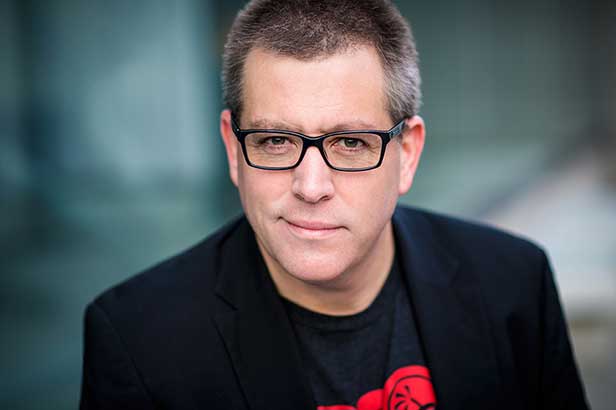News October 23, 2020
Power Summit 2020: Achieve Success During Challenging Times
In his keynote speech, entrepreneur Peter Shankman shared strategies on adapting to uncertainty.
Of all the buzzwords we’ve heard in 2020, Peter Shankman hates “unprecedented.”
“I fear it’s a challenge to the universe,” he said during the keynote address at ASI Power Summit Live on Thursday. “The universe will come back and say, ‘you want to see unprecedented? Hold my beer.’”
Watch the keynote speech from Peter Shankman above.
As we all fear what the coronavirus pandemic will bring next, Shankman encourages the promotional products industry to adapt to uncertainty. The sought-after speaker and founder of HARO (Help A Reporter Out) and The ShankMinds Breakthrough Network – a virtual brain trust of thought leaders, business experts and change makers – outlined concrete steps that entrepreneurs should follow to achieve success during this challenging time.
Shankman stressed the importance of transparency, letting customers know how you’re evolving to make their lives easier. You don’t have to reveal trade secrets or announce your monthly revenue, but you should give as much information about yourself and your company as possible. “The more a customer knows about you and the way you work, the more comfortable they’ll feel making a connection and giving you their business,” Shankman said. “We expect customer experience to be terrible. If we know that the bar is so incredibly low, we don’t have to do a lot to improve.”
In order to give your customers that information, you have to know how they want it delivered. How do you figure that out? Ask. “If you ask clients how they prefer to get their information, they’ll become invested and understand that you care about them,” Shankman said.
In the breakneck pace of the digital age, mastering the concept of brevity is also vital for success. “With only 140 characters to reach our audience, we need to become better communicators,” said Shankman, who hosts a podcast titled Faster Than Normal that tackles the subject of ADHD with people from around the globe. Repeating his journalism professor’s advice, he urged Power Summit attendees to “be brilliant at the basics.”
“Take a class in writing or reading,” he said. “One in every two home pages has a spelling error. Take a look at your competitor’s – if you don’t see an error on theirs, it’s on yours.”

Perhaps Shankman’s best advice for surviving during the pandemic is to stay in front of your customers. Not physically, of course, but to check in with them via email, social media or a good, ol’ fashioned phone call. Send helpful articles or stories, share something interesting that happened to you or just touch base. It’s important to reach out to your customers even when you have nothing to sell them.
“The five most underutilized words in the English language are ‘How can I help you,’” Shankman said. “Find out what your customers need the most of and find out the best way to deliver that to them.”
Fielding questions from viewers, Shankman said the best thing to look for in a new hire is empathy, especially during the COVID-19 crisis. “If someone has empathy, they’ll understand your customer’s needs,” Shankman said. “They’ll be willing to make a change on the fly because their empathy takes over.”
You can’t just worry about everyone else, though. You have to take care of yourself. The uncertainty of the past seven months has wreaked havoc on the mental health of everyone. Shankman revealed that he had lost three friends to suicide during the pandemic, all of whom were entrepreneurs who felt they couldn’t open up and share their problems with anyone.
“I encourage you to have someone to talk to,” Shankman said. “Get enough sleep. Exercise. Eat a vegetable. If we’re not at our best, we can’t help anyone else.”
Shankman also shared an anecdote about spending time with his daughter during the lockdown. With so much time at home, he started a butterfly growing kit to keep her entertained. Every morning when he woke her up for Zoom school, they’d run down to the kitchen to see if the cocoons had hatched. Finally, these beautiful, colorful butterflies came to life.
Shankman considers it an analogy for the promo industry.
“When caterpillars go into cocoons, they don’t know what’s about to happen to them – they just assume their life is over,” Shankman said. “As we see empty streets and hear dire predictions for winter, we’re like caterpillars. We may not realize it, but there’s an amazing future ahead of us. We just have to keep moving forward.”
